
“If you don’t know how to read, you don’t know how to do anything,” said Naomi White, librarian for her village of Lax Kw’alaams, north of Prince Rupert, on receiving 14 pallets of books and library furniture so that about 150 school-age children in her small village would get the chance to enhance their literacy through the Rotary-initiated Write2Read program throughout BC. Literacy, she said, is the key to more First Nations people advancing into higher education and holding down jobs in the trades, businesses and professions.
“We’re just so remote here. Now we’re better able to foster the love of learning. And to pass on that reading is power. The more you know the better of you are,” said White, describing how many young people in the village are keen to learn about the larger world through the library.
This story comes in large part courtesy of Vancouver Sun and Province writer and columnist Douglas Todd, who wrote a story about Write2Read, 'Please bring us more books,' in the March 20, 2021 edition of the Province (dtodd@postmedia.com; Twitter.com/@douglastod)
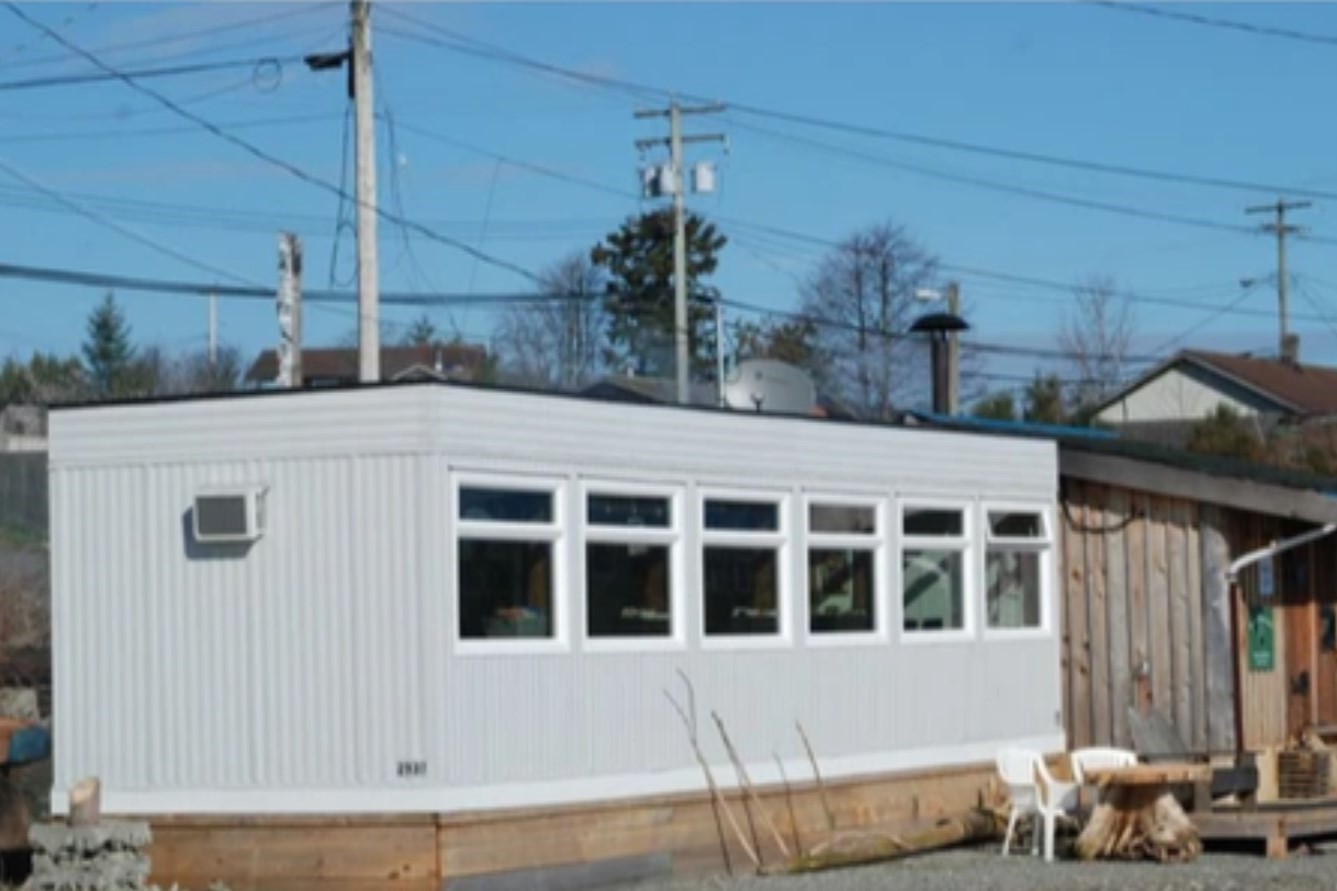 | 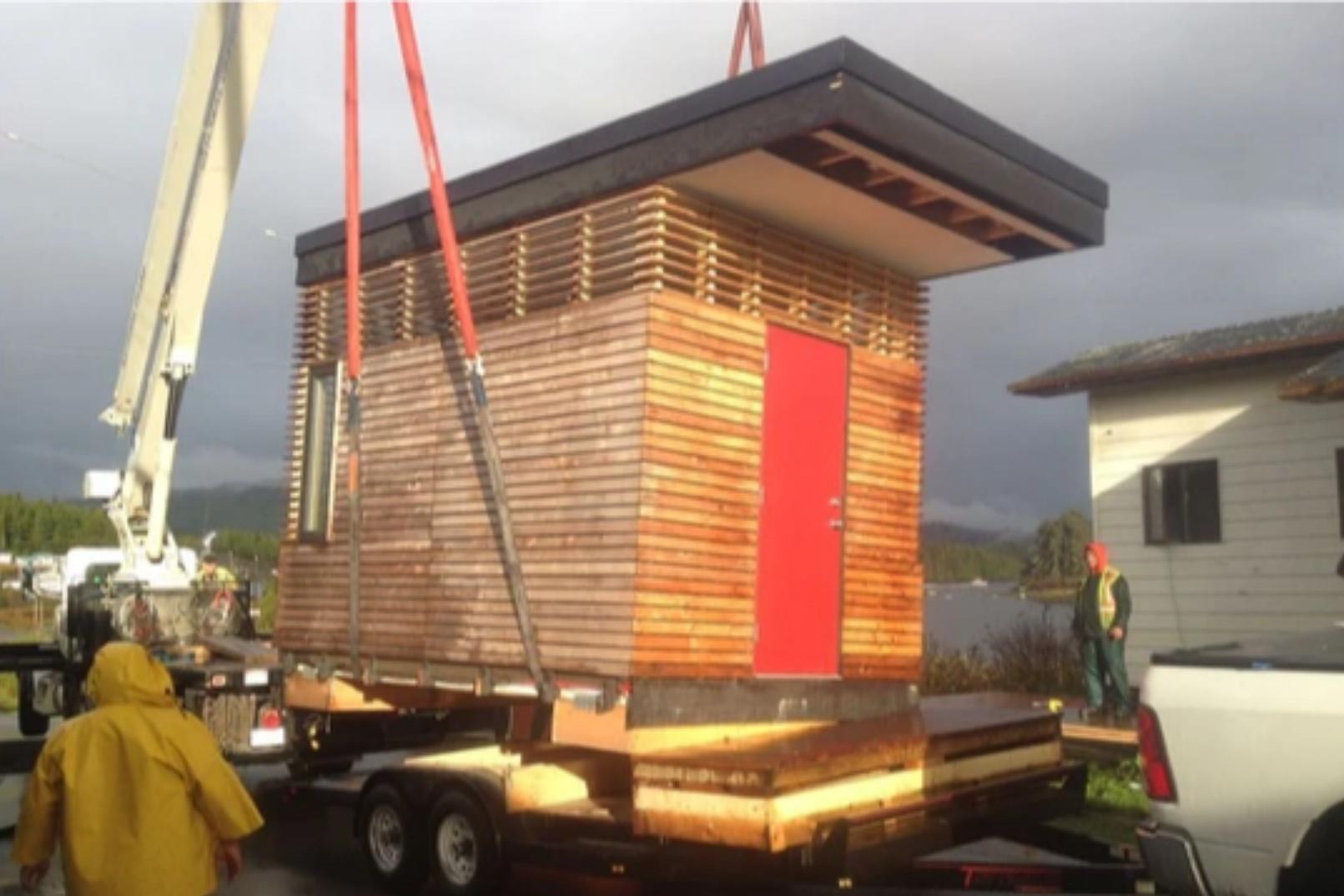 | |
The W2R library building in Bella Bella, donated by Britco Modular Solutions, has a small coffee and gift shop beside it, run by the local First Nation community | W2R pre-built library module loaded onto a barge for transport to the village of Metlakatla near Prince Rupert | |
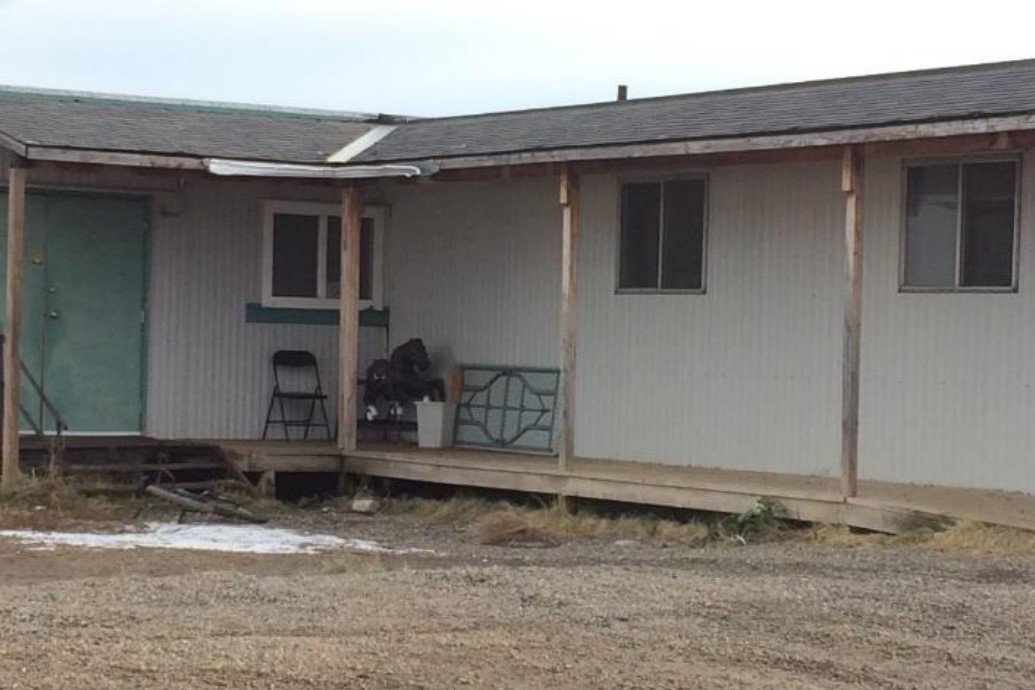 | 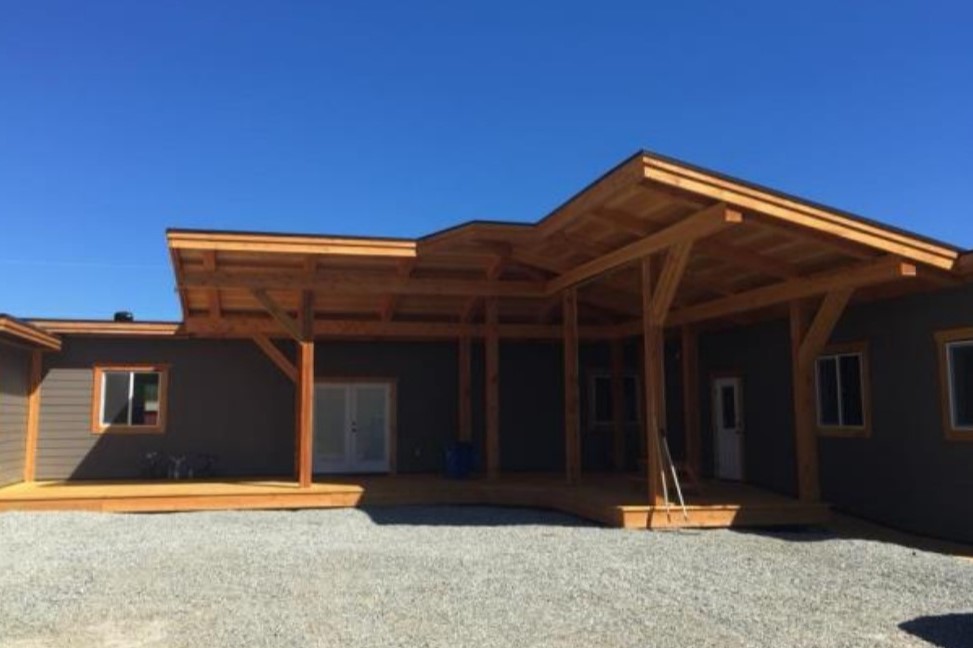 | |
Old band office converted to Painted Sky Centre | Renovated band office to Painted Sky Centre |
Without relying on government money, more than 50 volunteers with the Write to Read Project (W2R) have used trucks, boats and airplanes to distribute more than 70,000 books onto reserves throughout the province.
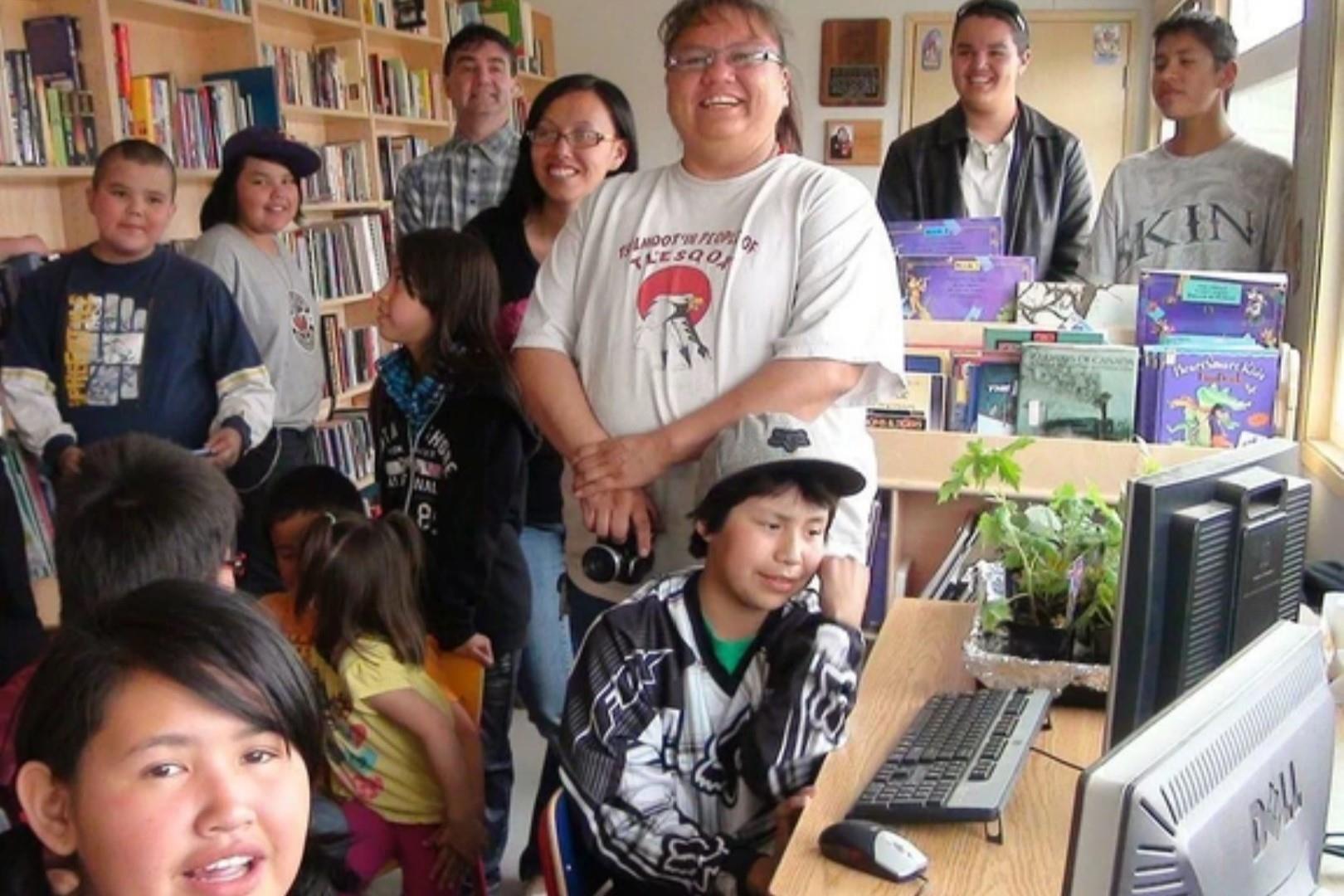 |
Stormy Williams, centre, is the librarian at Toosey Reserve at Riske Creek. Her library, and 18 others, were made possible through the volunteers of B.C.'s Write to Read Project. PHOTO BY HANDOUT COURTESY MICHAEL MCCARTH /jpg -- Van Province (Mar 20, 2021) |
Michael McCarthy, a North-Vancouver-based travel writer who helped design W2R reported that it costs W2R less than $50,000 to build a library in remote communities, including fees for barges and trucking, and no money "wasted on bureaucracy.”
He and other W2R organizers join First Nations leaders in stressing that enhanced literacy is one of the keys to young people overcoming the kind of despair that has ravaged many often-remote Canadian reserves, where educational opportunities can be limited and chronic unemployment normally runs high.
McCarthy said the changes, while not headline-grabbing, are profound as they occur in remote and impoverished Indigenous communities around Canada.
McCarthy, who has worked with Indigenous people around the world and in Vancouver’s Downtown Eastside, said some people may carry around assumptions that “people who have used only the spoken word for 10,000 years might take ages to adapt. But, in fact, for children it only takes minutes.”
A C.D. Howe study by Simon Fraser University professor John Richards found that only 50 per cent of B.C. First Nations primary school students read at the level expected of Canadian children their age. That reading success rate falls to 20 per cent by Grade 8.
At the Toosey reserve librarian, Stormy Williams said that pretty much everybody there uses the library, from the kids up to adults, even people coming from down the road.
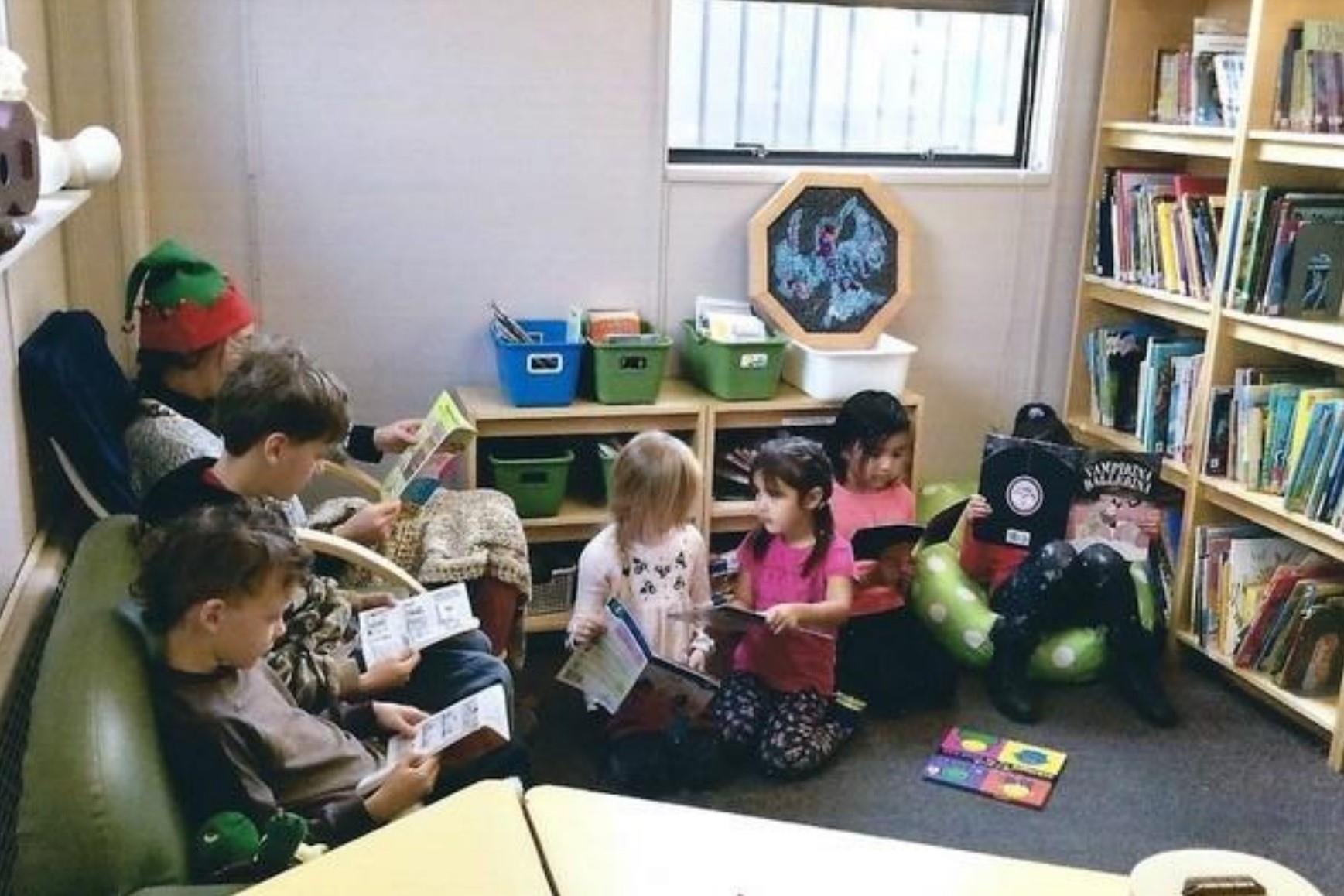 | 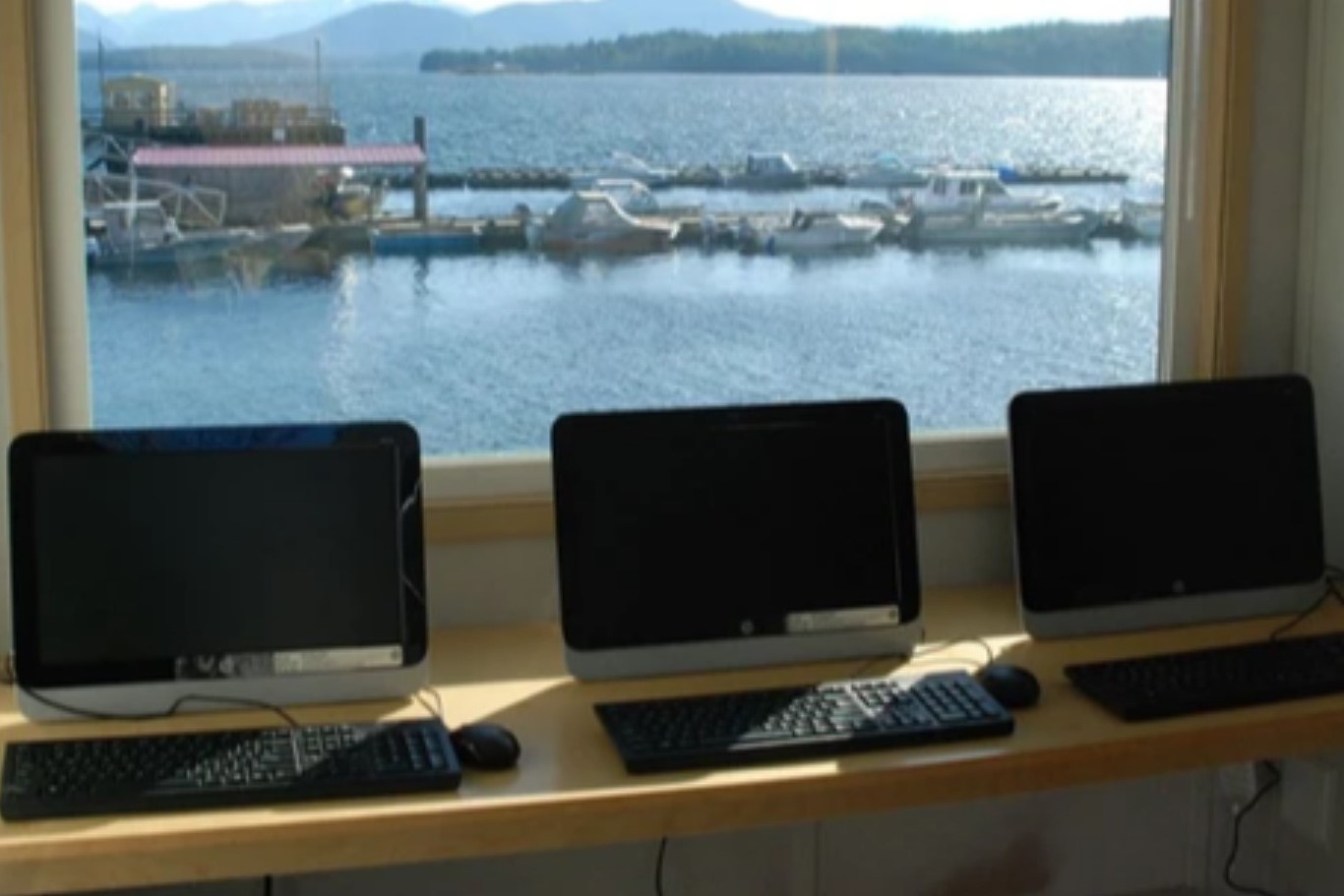 |
Lax Kw’alaams librarian Naomi White visited the Nanaimo Correctional Centre and met the mostly Indigenous inmates who have been building the furniture and shelving for almost all of W2R’s libraries.
Since the Lax Kw’alaams community library opened in 2016 White has noticed a stream of younger Tsimshian students coming in and absorbing books about Indigenous culture while also enjoying such things as graphic novels, including Geronimo Stilton, Captain Underpants and the Bone and Amulet series.
White said “The young people are learning not only where they’re from, but where they can go. Books show there’s more to the world than just here. You’re not limited to being stuck in one place. You can go wherever you want, as long as you work for it.”
To date W2R has distributed more than $226,000 in donations from foundations and Rotary Clubs to support Indigenous literacy. Bob Blacker said the 12 modules received from Britco International, donated and driven to each of the program sites, are alone valued at more than $500,000. Without Britco, W2R would not have been nearly as successful as it has been so far. Telus, Windsor Plywood, the Nanaimo Correctional Centre, Coast Guard staff and many RCMP officers have also made significant contributions to W2R.
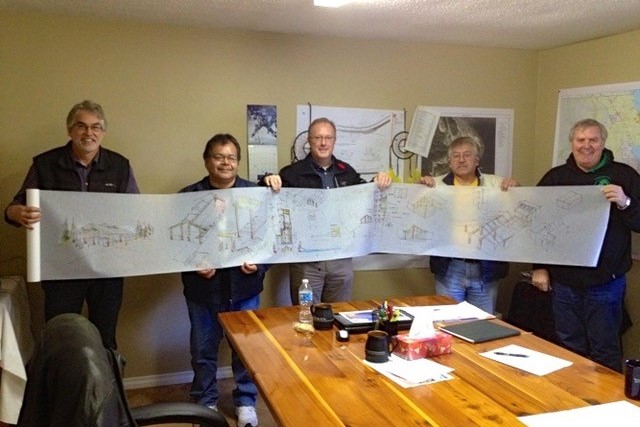 | 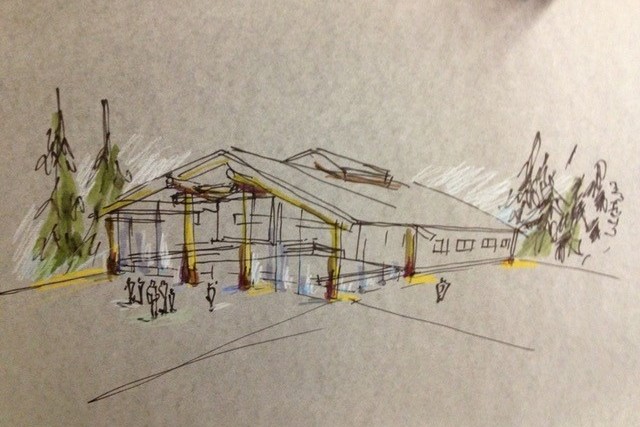 |
The first W2R imagineering session with the project architect, members of the Malahat First Nation community and Rotary leaders | W2R architect Scott Kemp’s first rendition for libraries and learning centres |
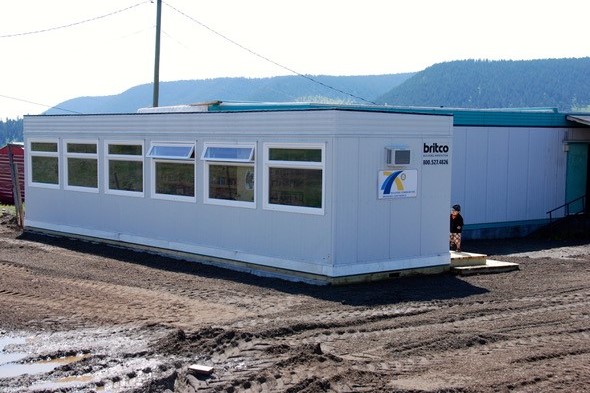 | 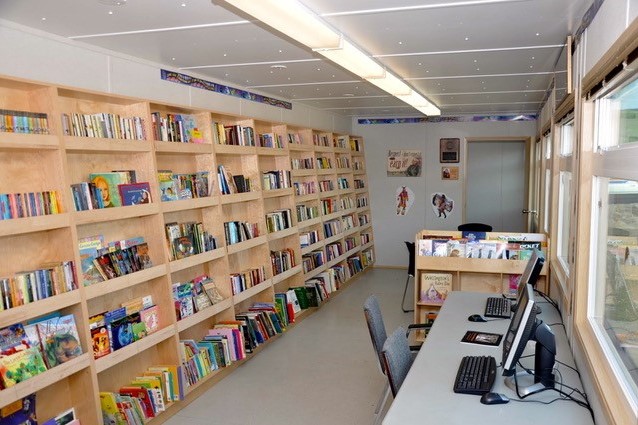 |
First library nstalled in 2011 on the Toosey reserve at Riske Creek, near Williams Lake | Library interior at Toosey Reserve |
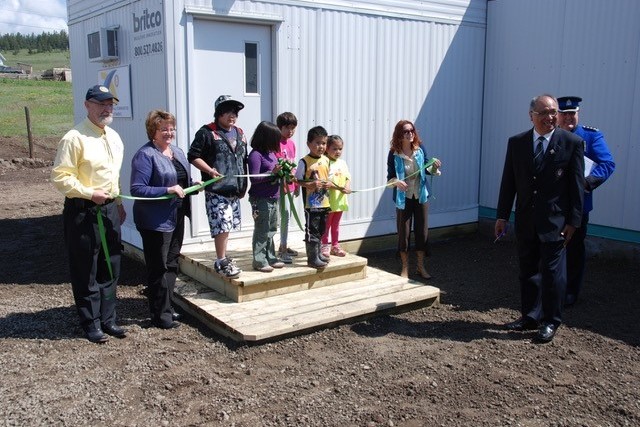 | 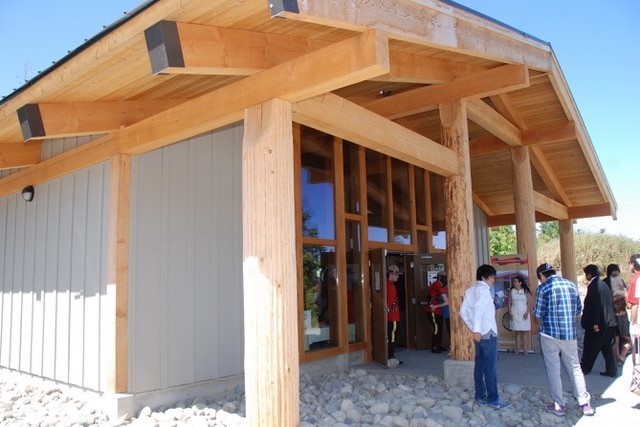 |
Then BC Lieutenant Governor Steven Point officially opens the first library at Toosey Reserve in 2011 | Malahat Kwanu Kwasen |
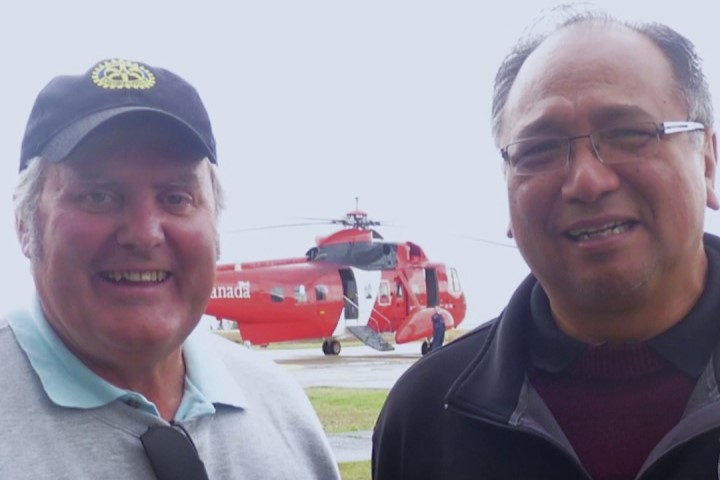 | 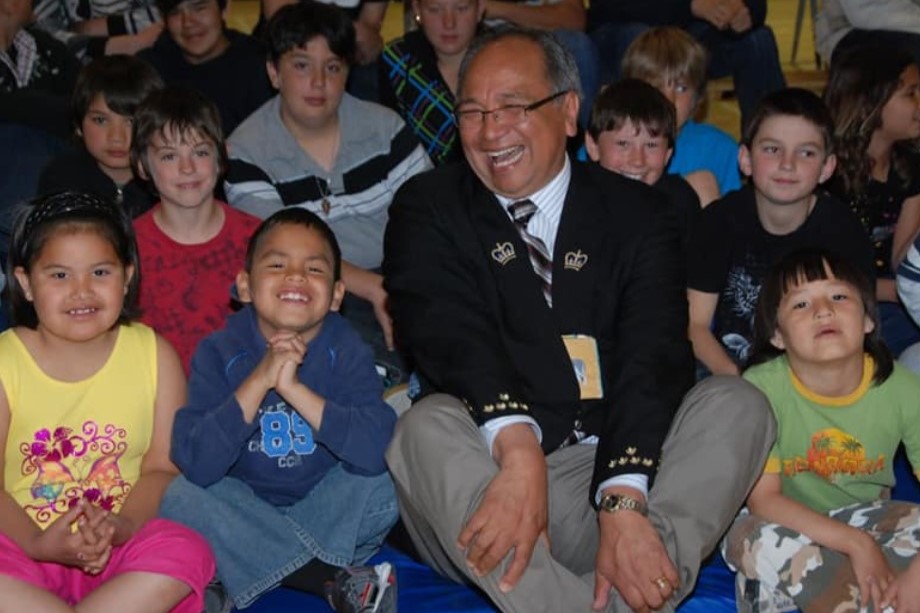 | 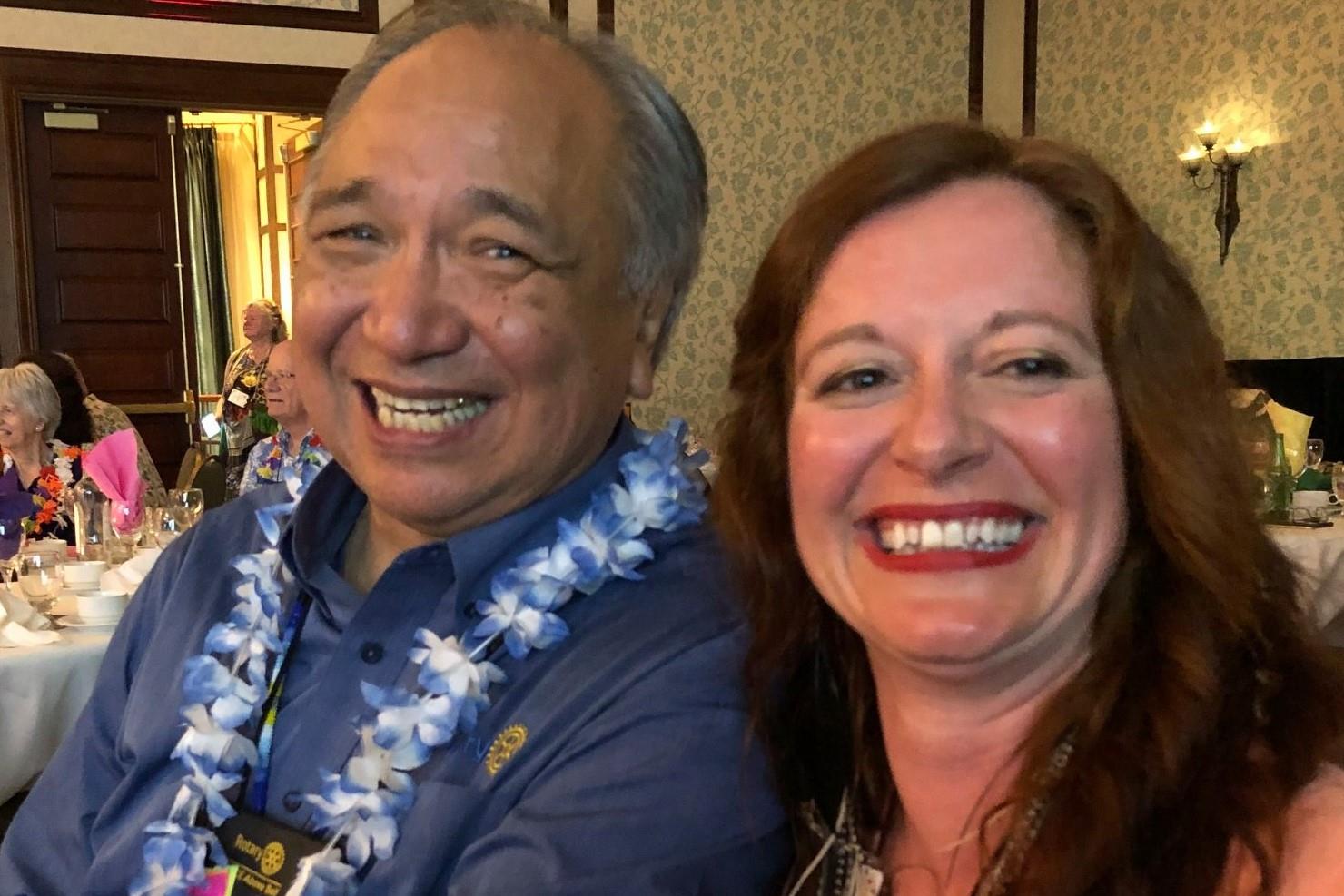 |
Two of the W2R leaders, Past District 5040 Governor Bob Blacker with Steven Point | Steven Point with children in First Nation community | Steven Point with now District 5040 Governor Shirley-Pat Chamberlain |
Communities where Libraries and Learning Centres are now installed:
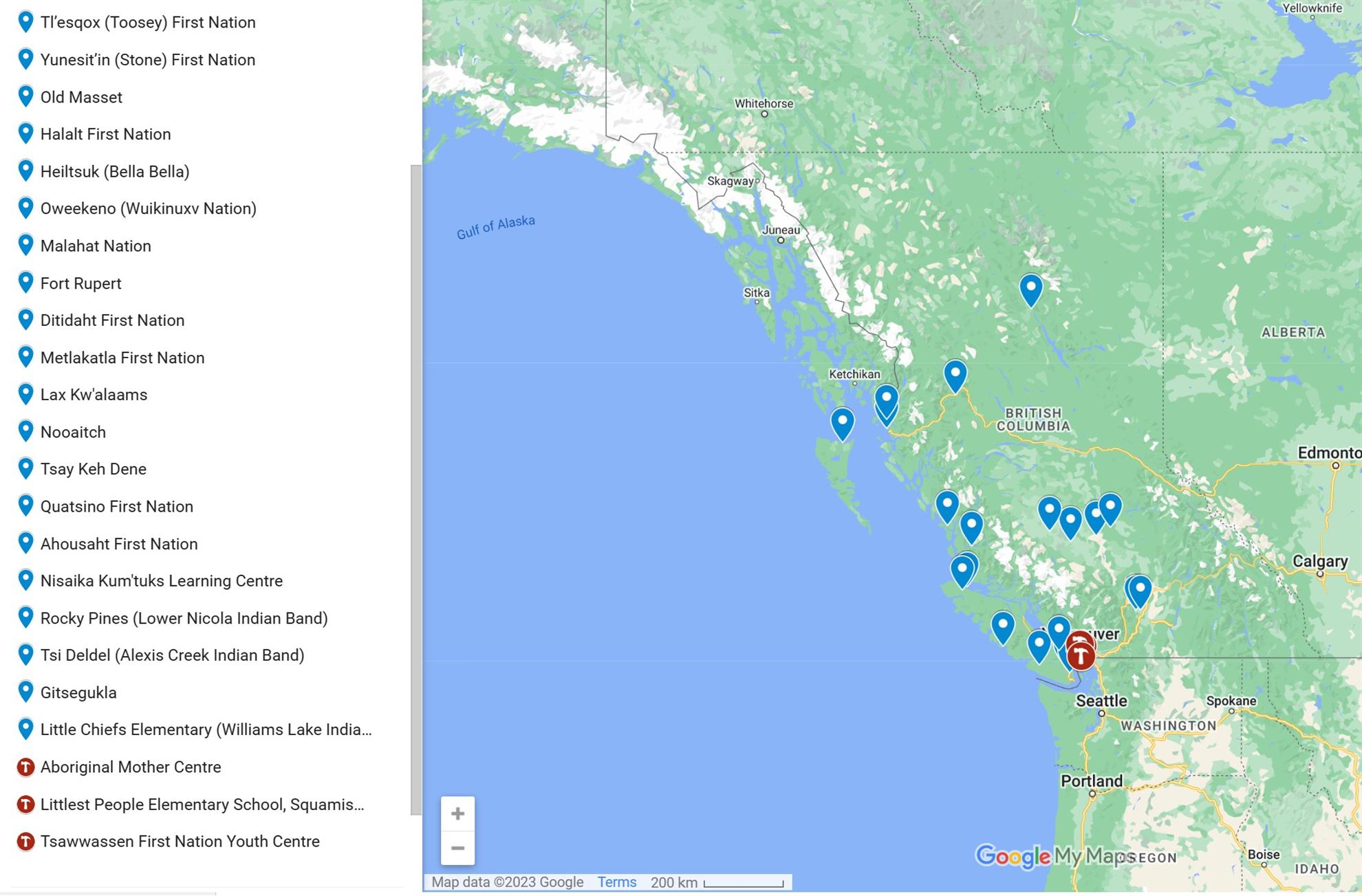
Also Ts'uubaa-asatx FN (formerly Lake Cowichan First Nation). In progress: Daylu Dena (Lower Post BC). Six more communities have expressed interest in developing a learning centre.
Rotary clubs which have sponsored one or more of the libraries or learning centres:
Burnaby Metrotown, Colorado, Commerce City, Langley Central, Lantzville, Lions Gate, Merritt, Mission Sunrise, | Nanaimo, North Delta, Peachland, Port Hardy, Port McNeill, Prince George Yellowhead, Richmond Sunrise, Sechelt, | South Cowichan (Mill Bay), Steveston, Sunshine Coast, Terrace-Skeena Valley, Vancouver Arbutus, West Vancouver Sunrise Whistler Millennium, Williams Lake, Williams Lake Daybreak |
Companies and organizations which have sponsored one or more libraries and learning centres:
Britco (12) Camera Buildings, | Coquitlam Chrysler Jack Chin Family Foundation | Success by Six, Write to Read |
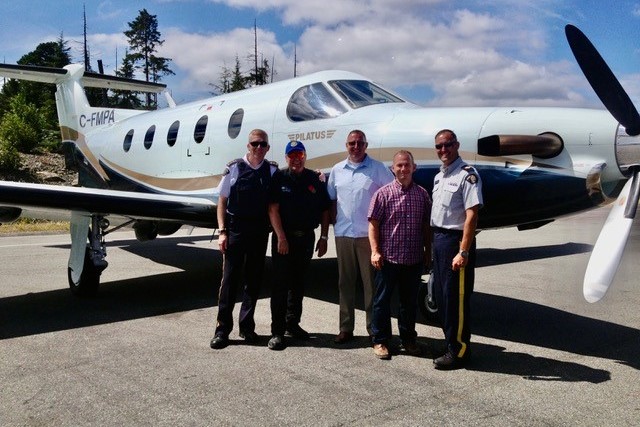 |  |
 |  |